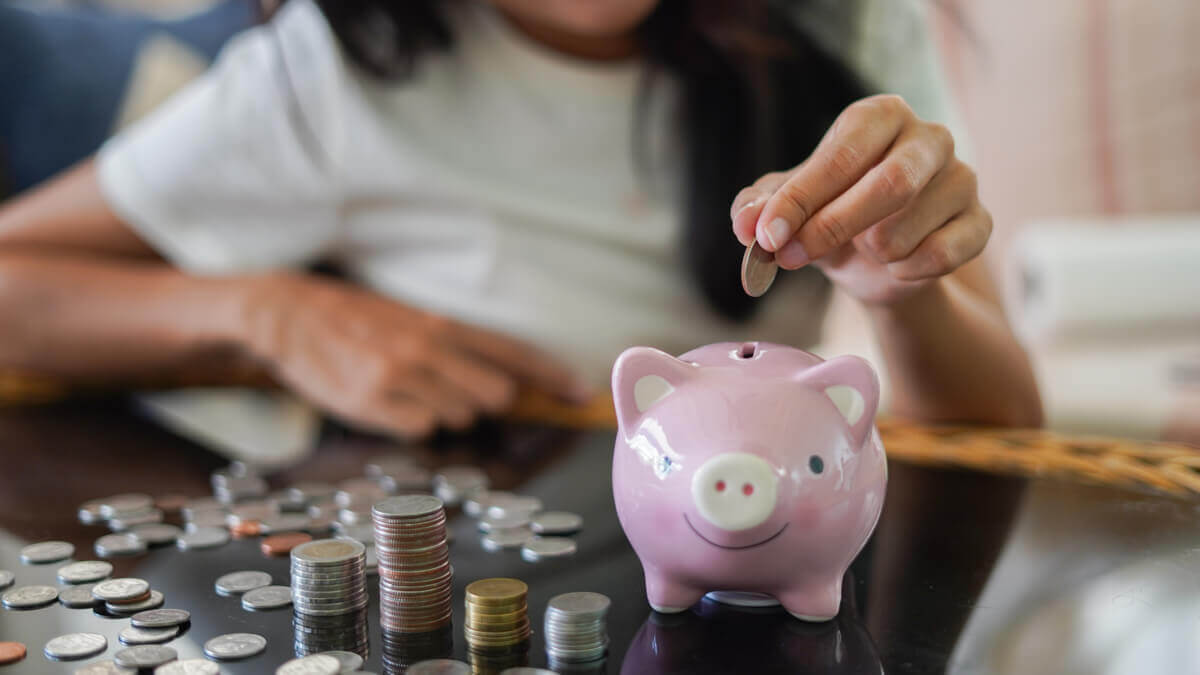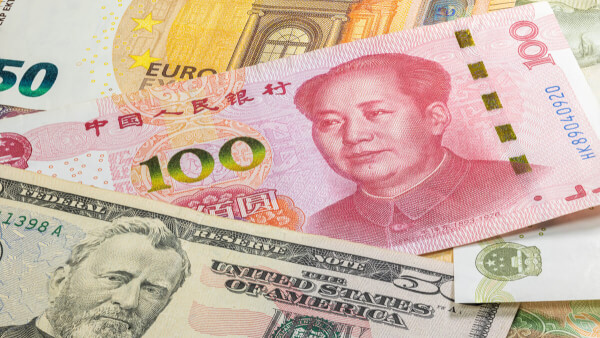Does WeChat Pay (Weixin Pay) work in Hong Kong?
Explore how WeChat Pay works in Hong Kong, discover the difference between its mainland and HK versions, and find out the best payment alternatives.

If you need to exchange your money to a different currency - because you’re planning a trip, or want to send a remittance for example - you’ll know the exchange rate matters. A bad exchange rate means you’re paying hidden fees. And by handing over more than you expect to the bank or currency service, you have far less to spend on yourself in the end.
This guide has all you need to understand how foreign exchange rates are set - and how to spot a good rate when you see it. We’ll also cover smart ways to access great rates when you transfer money abroad, with Wise.
An exchange rate tells you how much you need to pay to buy foreign currency - or how much you’ll get back in HKD if you’re converting foreign currency back to dollars.
It should be simple enough, but in reality there are many different exchange rates out there. That’s because each bank, foreign exchange service and international payment provider can set their own exchange rates.
It pays to shop around when you’re exchanging currency. If you’re not sure you’ve found the best deal available, keep looking. You have alternatives. More on how to spot a great deal, and some smart ideas to help you save, in a moment.
Before you switch your currency, there are a few simple steps you can take to make sure you get a good deal.
Firstly, know that exchange rates change all the time. You’ll need to look up the live exchange rate for your currency pairing using Google, or else grab a currency converter to keep track.
The rate you see on Google or a reputable currency converter is the mid-market exchange rate. This may also be called the interbank rate or the spot rate - and it’s the one banks and currency providers use when they buy and sell currencies themselves. However, it’s not usually the rate given to regular customers. Instead, banks add a markup or margin, which is an extra fee, to create the retail exchange rate which is used for everyday transactions.
Once you know the mid-market exchange rate for your currency, you can compare the rates available from your bank or alternative providers to see which is best value.
No matter where you’re going, you’ll want to cut the costs of currency exchange. Here are a few smart ways to consider:
If you’re looking for currency conversion when traveling abroad, the easiest way to get your travel money is often using local ATMs on arrival. The exchange rates set by major card providers tend to be relatively fair, and you can withdraw what you need, when you need it.
However, you can find you’re paying much more than you have to if you get caught out by Dynamic Currency Conversion (DCC) when using a card abroad. You might see DCC whenever you’re using a card overseas - at an ATM, store or restaurant for example. DCC is where you’re asked if you’d rather pay in the local currency where you are, or your home currency. To access the best exchange rates and avoid excessive fees, choose to pay in the local currency everytime.
Why do exchange rates vary between banks, money transfer providers and currency exchange companies?
As we mentioned earlier, there are many different exchange rates out there. Almost as many as there are foreign exchange services.
Some services will set different rates for different types of payment, or even different individual customers. You’ll find different sell/buy rates which mean the exchange rate used is different depending on whether you’re buying or selling the particular currency, and the TT (telegraphic transfer) rate is often different again. You might even be offered a different exchange rate depending on whether you’re paying in cash, using a bank transfer, or with a card.
The reason for all of the variation is that banks and currency services usually add a markup - an extra fee - to the exchange rate they give customers. This is very common, but does make it harder to spot the best deal available.
Use the mid-market exchange rate for your currency pairing as a benchmark to compare the rate you’ve been offered for your specific transaction. Then you can see if a markup has been added - and how much.
It’s good to know that not all services add a markup to the exchange rates used. Wise uses the mid-market exchange rate every time, with no hidden fees. You just pay a low, transparent cost per transaction.
If you’re planning on sending a payment overseas, check out the great exchange rates and low fees on offer from Wise.
Transfers always use the mid-market exchange rate - which can mean a payment works out 8x cheaper than your normal bank. It’s easy to see how the costs of using Wise stack up against other options, using this handy online comparison tool. Just enter the details of your particular transfer to see if you can save with Wise.
Open your free Wise account here🚀
Finding the right currency exchange service for you will require a little research. The best option may vary, depending on whether you want to send a payment online, get money to someone abroad in cash, or convert your travel money. Use the pointers in this guide to help you select the best deals available out there, and don’t forget to check out Wise for low cost, safe and fast international payments.
*Please see terms of use and product availability for your region or visit Wise fees and pricing for the most up to date pricing and fee information.
This publication is provided for general information purposes and does not constitute legal, tax or other professional advice from Wise Payments Limited or its subsidiaries and its affiliates, and it is not intended as a substitute for obtaining advice from a financial advisor or any other professional.
We make no representations, warranties or guarantees, whether expressed or implied, that the content in the publication is accurate, complete or up to date.

Explore how WeChat Pay works in Hong Kong, discover the difference between its mainland and HK versions, and find out the best payment alternatives.

Discover how PayPal operates in Hong Kong, including fees. Learn about account types and cost-effective ways to manage international transactions.

Confused about Alipay in Hong Kong? Discover the differences between Alipay and AlipayHK and find the best options for cross-border payments in this guide.

Navigating China's foreign exchange controls? Understand key regulations, limits on international transfers and cash, and the annual quota for individuals.

Wondering if Revolut works in Hong Kong? Find out everything you need to know about using Revolut in Hong Kong.

This guide will compare the seven most popular and best credit cards from different providers in Hong Kong.